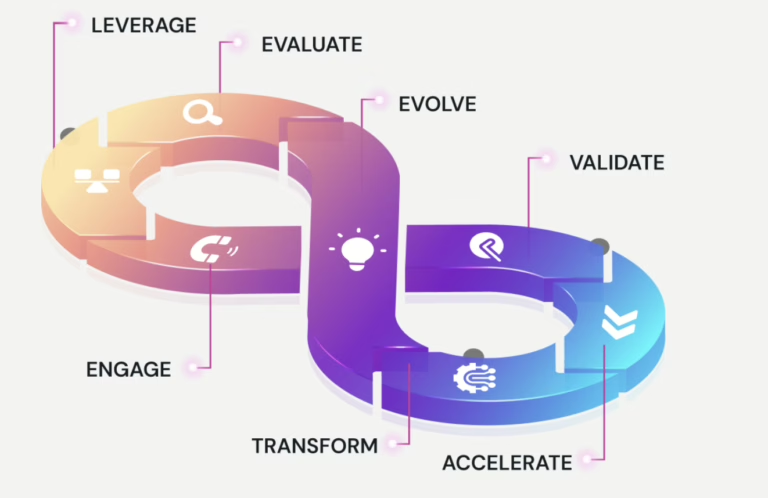U.S.A is looking towards a new era of modern healthcare.
For an instance think of a world where your health journey works as per your priorities and is more personalized than ever before. As we move to intersection of new methods and traditional ways, the future of healthcare is all set to revolutionize how we experience and manage our well-being.
From digital tools that bring healthcare to your fingertips to new models of care that prioritize your unique needs, the coming changes are not just improvements—they’re revolutionary.
Let’s explore the shifts meant to redefine the healthcare landscape in USA. These developments could elevate your healthcare experience and transform the very essence of care itself. Join us on this journey to uncover the future of healthcare and what it means for you.
Digital Innovation Shaping the Future of Healthcare
Technologies are changing healthcare in ways we could only think of a decade ago. Today, digital solutions are redefining our entire experience with medical care. For instance, imagine managing your health with just a few taps on your smartphone and effortlessly sharing your medical records across different providers. This isn’t just about making processes more convenient; it’s about setting a new standard for efficiency and personalization in healthcare.
Artificial Intelligence (AI) is at the forefront of this revolution. Imagine a future where medical diagnoses are faster and more precise, thanks to AI based advanced algorithms now filter massive amounts of data, from medical images to patient histories, to assist doctors in pinpointing conditions with unprecedented accuracy. For example, AI-powered tools can help radiologists detect cancers earlier, significantly improving patient outcomes and saving lives. But AI won’t stop there; it’s now capable of personalizing treatments by analyzing genetic data, ensuring therapies are tailored to each individual, reducing side effects, and maximizing effectiveness.
Meanwhile, telemedicine is no longer a luxury but a necessity. The pandemic highlighted its value, making remote consultations a viable and efficient option. Virtual visits and remote monitoring are bridging gaps, making high-quality care more accessible than ever, especially for people in rural areas with limited or no access to healthcare. Welcome to a world where technology will be a partner in your health journey.
Shifting Focus to Value-Based Care
Shifting to value-based care marks a major shift in how healthcare is delivered in the U.S. Instead of rewarding providers based on the number of treatments or procedures performed, this model emphasizes quality, focusing on better patient outcomes and overall cost reduction. It’s a smarter, patient-centered approach that encourages providers to deliver more effective, coordinated care. In this system, healthcare teams work together to prevent illness, manage chronic conditions, and improve the long-term health of patients rather than simply treating symptoms.
The goal is clear – move beyond quantity and prioritize a comprehensive view of health. By focusing on keeping patients healthy and minimizing unnecessary treatments, value-based care has the potential to make the entire healthcare system more efficient, affordable, and aligned with what patients genuinely need: better care and better results.
Addressing Mental Health with New Solutions
Mental health is now recognized as a crucial part of our overall well-being, and recent events have underscored its importance more than ever. The pandemic helped in accelerating the development and adoption of new mental health solutions and integrating them into mainstream care.
Today, innovative digital tools are breaking barriers in mental health care. Online therapy platforms and mental wellness apps are revolutionizing access, offering convenience and privacy to those seeking support. These technological advancements make it easier than ever to find help and manage mental health on your terms, whether you’re at home or on the go.
Moreover, there’s a growing focus on a holistic approach that merges mental and physical health care. By addressing both aspects of a person’s well-being together, healthcare providers can offer a more rounded and effective treatment plan. This integrated approach ensures that mental health is no longer an isolated concern but a fundamental part of comprehensive care, paving the way for healthier, more balanced lives.
Preparing for an Aging Population
The healthcare industry is facing a wave of new challenges. With more seniors than ever before, there’s a rising demand for long-term care and services specifically customized to their needs. To address this, exciting new solutions in senior care are emerging.
Picture a world where technology effortlessly supports aging individuals. Remote monitoring systems, voice assistants, and smart home devices are now at the forefront, empowering seniors to manage their health more effectively. These tools can track health metrics, provide medication reminders, and even detect falls, offering peace of mind to both patients and their families.
But innovation doesn’t stop with technology. There’s also a growing emphasis on holistic care, addressing not just medical conditions but also the social and emotional well-being of older adults. Community programs and support networks are playing an important role in enriching the lives of seniors, ensuring they lead fulfilling and connected lives. In this evolving landscape, the focus is on creating a supportive, comprehensive approach to aging, where technology and human care work hand in hand.
Handling Healthcare Disparities
In the U.S., a significant challenge in healthcare is the disparity in access and quality among different populations. The good news? There’s a growing wave of initiatives designed to tackle this issue head-on, with the aim of making quality care which is accessible to everyone, regardless of their background.
Efforts to enhance equity in healthcare are gaining momentum, with a focus on expanding access for underserved communities. Key strategies include:
- Broadening Medicaid coverage.
- Increasing support for community health centers.
- Leveraging telemedicine to reach remote and rural areas.
These measures are not just about providing more care—they’re about providing better care where it’s needed most.
By looking at the social factors that impact health and prioritizing fairness in healthcare delivery, we’re moving toward a more inclusive system. The goal is to ensure that everyone, regardless of geographies or socioeconomic status, can access the care they need to lead a healthier life. This transformative approach is set to reshape the healthcare landscape, making it more equitable and responsive to the needs of all communities.
Mastering the Regulatory Landscape
In the ever-changing world of healthcare, staying updated with regulations is more crucial than ever for providers and organizations. One of the hottest topics is drug pricing. With rising medication costs affecting countless lives, there’s a solid push to make drug pricing more transparent and affordable. Imagine a future where you don’t have to guess the cost of your prescriptions or worry about hidden fees.
New initiatives are calling for more significant price disclosures and innovative strategies to negotiate better rates. These changes aim to not only bring down costs but also make it easier for you to understand what you’re paying for. As the regulatory landscape evolves, the goal is clear: more transparency and fairer prices, ensuring that you can focus on your health without the added stress of exorbitant medication costs. Stay tuned as these reforms unfold and reshape the way we approach drug pricing.
Welcoming the Future of Healthcare
The future of U.S. healthcare is an exciting journey full of promise and transformation. As we look ahead, the industry is set to adopt remarkable advances in technology, personalized care, and equity. While challenges still lie ahead, the wave of innovations on the horizon offers a vision of a healthcare system that is more effective, accessible, and compassionate.
Picture a future where AI not only diagnoses with remarkable accuracy but also personalizes treatments just for you. Envision a shift to value-based care that focuses on your well-being rather than just the volume of services. This next chapter in healthcare isn’t just about receiving care—it’s about experiencing it in a way that is more responsive, personalized, and deeply human-centered.
Welcome to the new era of healthcare, where technology and compassion come together to improve every aspect of our lives. As these changes unfold, they promise to transform the very essence of how we manage and experience our health.







